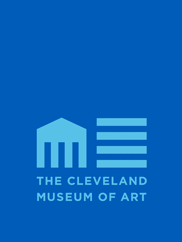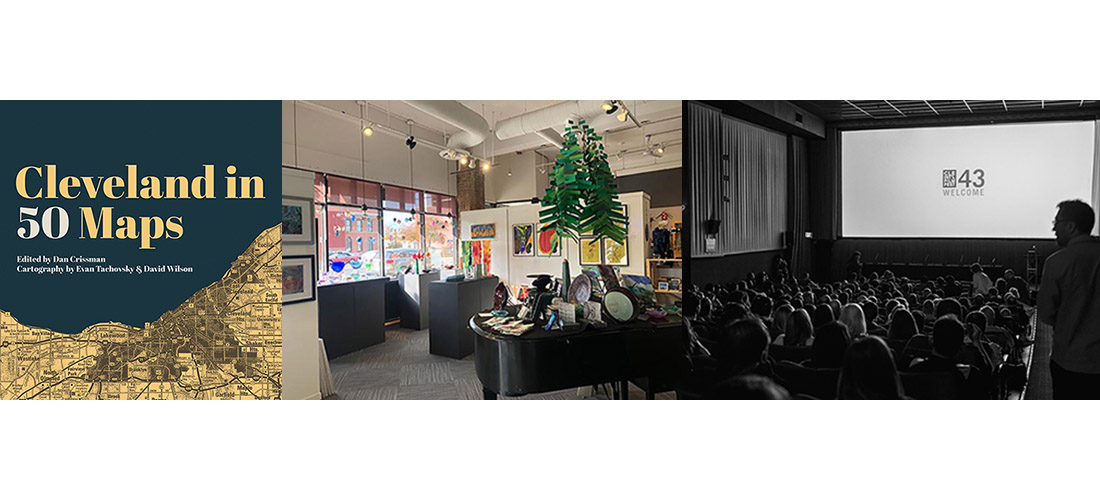
By Amanda Koehn
The second iteration of FRONT International, the Cleveland contemporary arts triennial that debuted in 2018, aims to explore the city’s historical struggles and its complex and winding efforts toward transformation.
FRONT International: Cleveland Triennial for Contemporary Art 2021 will be titled, “Oh, Gods of Dust and Rainbows,” and will run from July 17 to Oct. 2, 2021, the arts organization announced Jan. 14. Arts events and installations as part of FRONT will be distributed across Cleveland, Akron and Oberlin, and feature regional, national and international artists who will create new projects surrounding the theme and city.
“Oh, Gods of Dust and Rainbows,” comes from a 1957 poem by author Langston Hughes, who moved to Cleveland as a child and embraced an artistic connection to the area. The poem is a reflection on adversity and a prayer for transformation.
As Cleveland’s social system historically is marked by economic, political and environmental conflict, FRONT aims to connect that past with the city’s attempts to reinvent itself, as well as the continuing cycle of repair, crisis and recovery. FRONT’s artistic vision focuses on the process of long-term change and continuing needs.
During a preview event at Karamu House in Cleveland, the event’s leaders discussed the 2018 first iteration of the triennial and its impact, as well as plans for the second event next year. New co-artistic Director Prem Krishnamurthy led a panel discussion at the preview, with panelists Meghana Karnik, FRONT 2021 associate curator; Lo Smith, curatorial assistant; Evelyn Burnett of ThirdSpace Action Lab; Courtenay Finn, Museum of Contemporary Art Cleveland chief curator; and Emily Liebert, Cleveland Museum of Art curator of contemporary art. Co-artistic director with Krishnamurthy is Tina Kukielski, who is based in New York City.
Krishnamurthy said the 2021 event specifically aims to address industrialization-created wealth in Cleveland and how it led to “alienation and environmental degradation,” and then how the city’s latest upshot is tied to new technology in health care. In conceptualizing FRONT 2021, those themes opened up discussions around “iconic moments” in Cleveland’s history, such as the Cuyahoga River burning in 1969 and how it led to the establishment of the Environmental Protection Agency, “rewriting the relationship between humans and nature” and how artists reflect on it.
“It also led us to thinking about community and how different communities form in difficult times and these kind of communities can create sanctuaries,” Krishnamurthy said. “Whether it’s religious or spiritual communities, whether it is groups like Alcoholics Anonymous – that we discovered started in Akron, Ohio – or something like a dance club, a place that brings people together from very different backgrounds. So thinking about these different modes of how people experience the world and deal with it.”
Speaking briefly at the beginning of the preview event, FRONT founder and executive director Fred Bidwell discussed the city’s economic impact from the FRONT 2018 inaugural event. The FRONT 2018 included hubs of installations around Cleveland and surrounding cities, and collaborations between area arts institutions. It also restored The Madison in the Glenville neighborhood of Cleveland to house artists in residence, as well as establish Glenville as a hub for installations and programming.
“It was an outstanding critical success that brought $31 million in economic impact to Cleveland,” he said. “But FRONT 2021 will not be a repeat. Each triennial exhibition of FRONT will be distinctly different, and distinctly new, driven by the artistic vision of new artistic leadership for every edition.”
He also noted the 2021 theme was to be announced in New York City on Jan. 15, “but tonight, Cleveland hears it first.”
Krishnamurthy noted one aspect will include a Bluetooth-powered dance floor in downtown Akron, designed by Stockholm-based architecture collective Dansbana!.
Burnett said the event aims to demonstrate “art as action.” She also noted questions surrounding structural racism and inequality that the triennial hopes to address.
“I’m hoping that FRONT continues to serve as a vehicle and platform to have conversations that make our city better,” she said.










